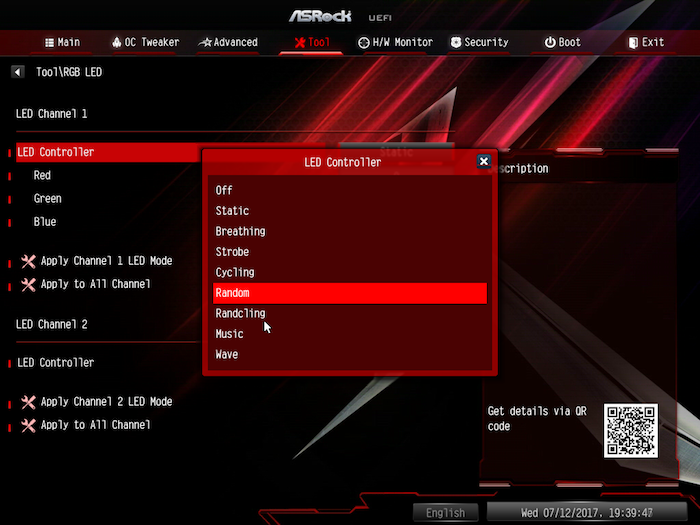ASRock X370 Killer SLI/ac Motherboard Review
Why you can trust Tom's Hardware
Software & Firmware
The ASRock X370 Killer SLI/ac shares a similar UEFI interface to the Gaming K4. Red starts to consume the software interface as we stare into the heart of this product. Typical ASRock options are provided, with the OC Tweaker providing all the knobs for our overclocking purposes.
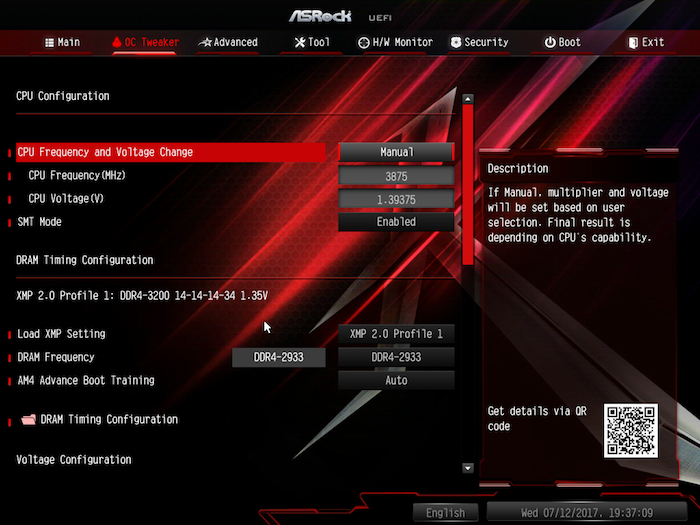
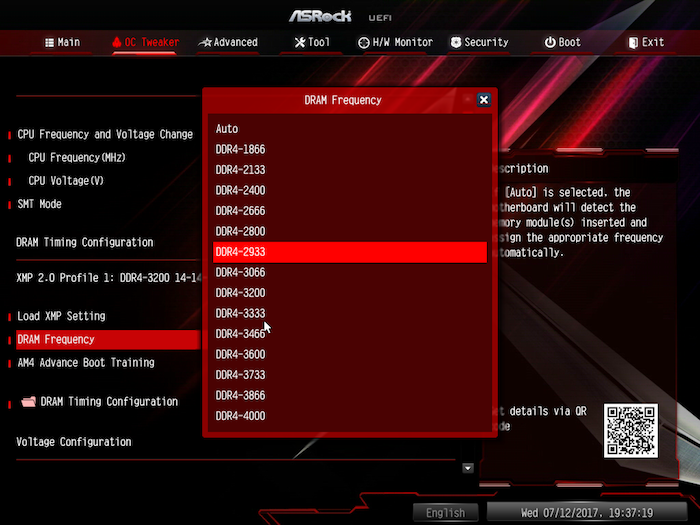
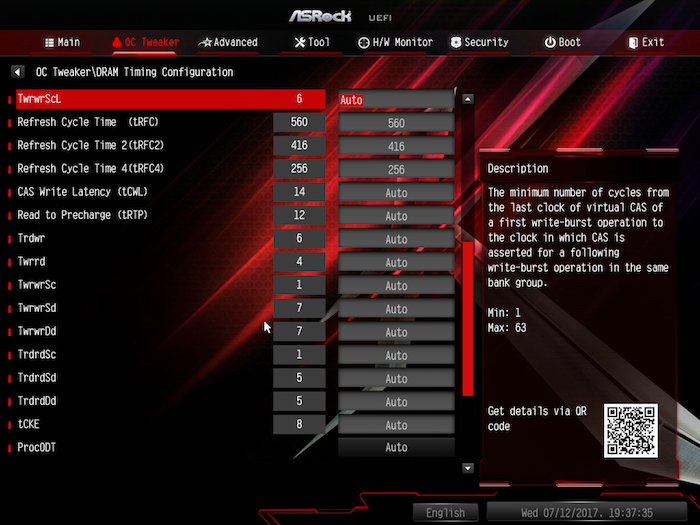
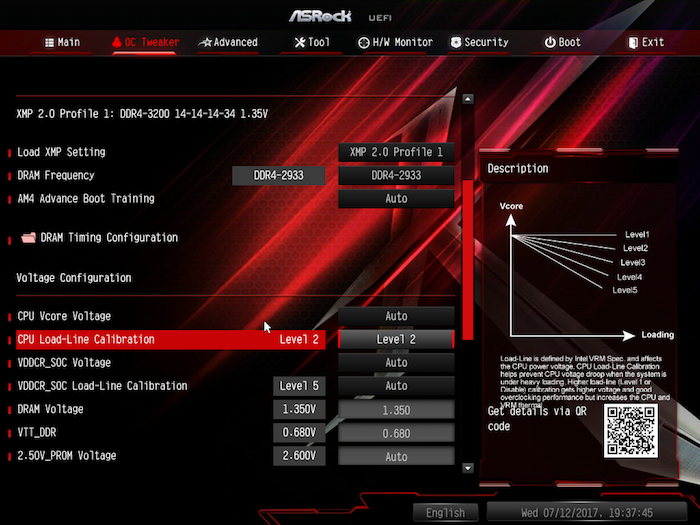
Voltage increments are in 6.25mV steps, frequency adjusts in 25 MHz increments, and the DDR4 frequencies range from DDR4-1866 all the way to DDR4-4000. Having spent some time staring at JEDEC specs in my GDDR3 days, the options available in the timing configuration menu are not for the faint of heart. Moving down the screen, load line settings are described fairly well, and additional voltage rails are opened up for customization.
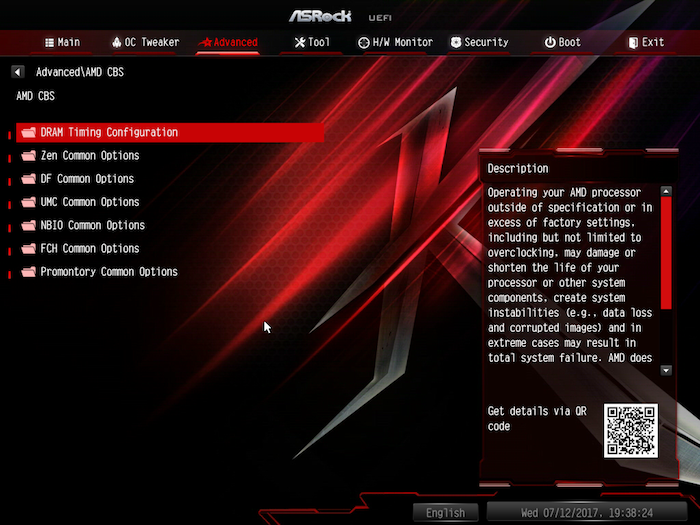
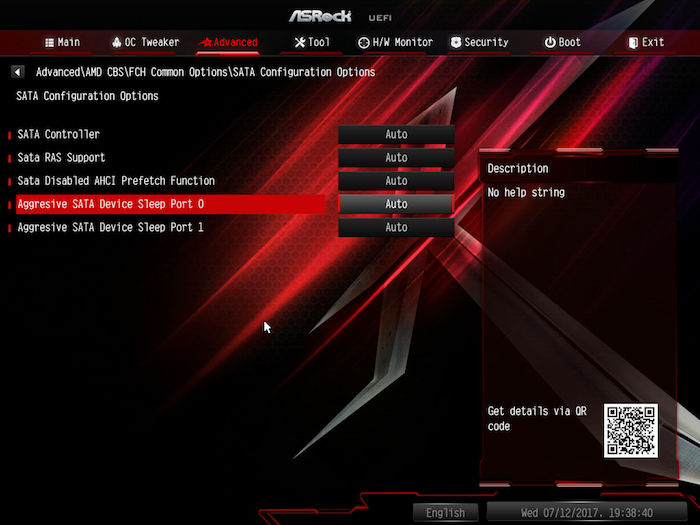
The Advanced menu provides more of the same familiar options for SATA, Cool ‘n Quiet, and its ilk, and once again “No Help Strings” are found throughout the AMD CBS menus. One thing we didn’t cover much in the Gaming K4 review was the interface for the programmable LEDs on the product. Jumping over to Tools, each of the LED controllers can be programmed with various lighting effects, and values for red, green, and blue can be assigned in numerical fashion.
Opening up FAN-tastic Tuning slaps us in the face with red gradient, while our eyes struggle to find the blue fan curve for various usage modes. Individual fans can be programmed for different curves, but I’m lazy and stuck with “standard” for all fans. FanTuning gives the firmware thresholds for PWM control by measuring the RPM and assigning minimum and maximum settings.
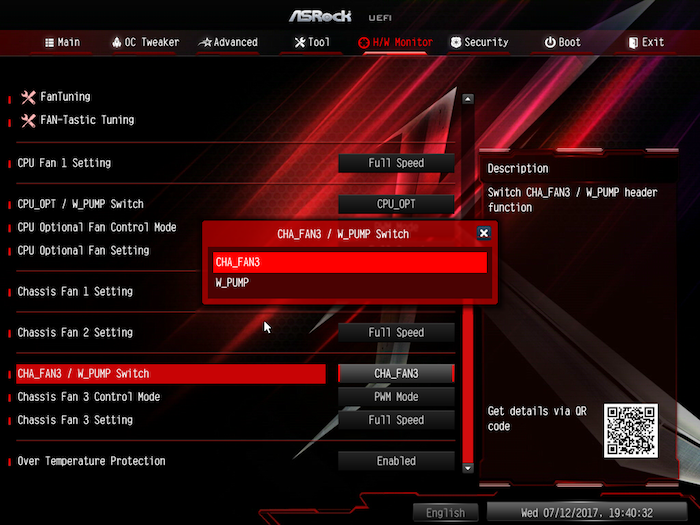
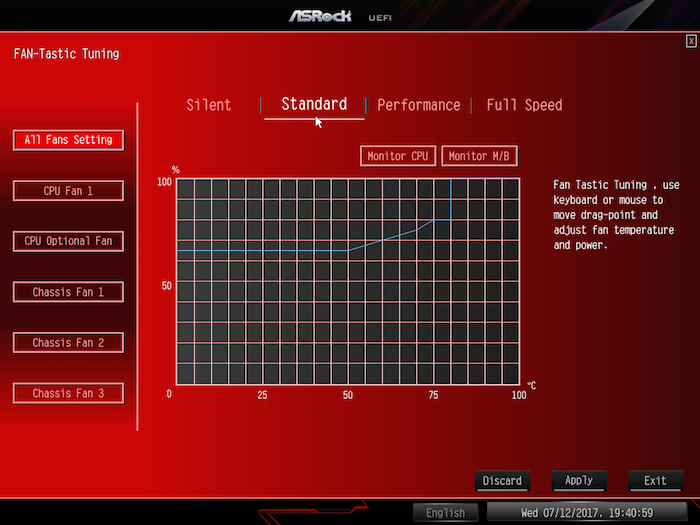
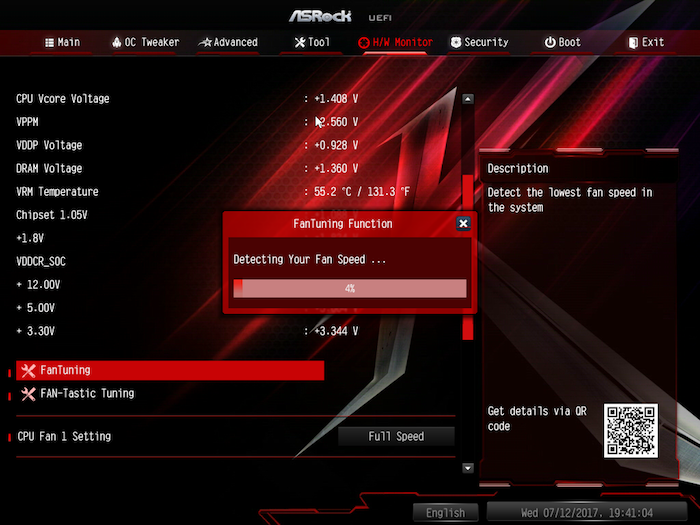
Last, AGESA 1.0.0.6 is finally here, and we can’t help but mention how huge this is for ASRock boards. We haven’t loaded it onto any of our older samples, but hopefully the images provided show that we can finally run all of our DDR4 DIMMs at overclocked speeds. This is something the community has been hounding vendors for.
MORE: Best Motherboards
MORE: How To Choose A Motherboard
Get Tom's Hardware's best news and in-depth reviews, straight to your inbox.
MORE: All Motherboard Content
-
azizisalmane Nice Review, I just wanted to ask you a question, I have the same motherboard, but when i OC my RAM to 2933mhz (which is the max frenquency where windows won't crash) the boot time is like WAY LONGER, (i'm talking about the pre-splash boot, not the windows one), it usually takes like 6 seconds or 7 tops for it to show the asrock logo when on 2134mhz, but once i go up to 2933, the boot time goes up to like 17 seconds. then when it gets to windows it boots up normally within 4 seconds. Have you ever encountered this problem when testing ?! (I also updated the bios but in vain)Reply -
TheTerk Yes, this is likely due to "Advanced Training" options within the UEFI (sorry if that's not the specific name in the menus.) This feature enables the BIOS to do some stability testing on the interface to confirm that it is reliable within the training routine. Each loop of the training can take a few seconds, so your memory interface likely took a few tries to get reliable results.Reply
I'd run a memstress test on your platform to confirm 2933 is stable. -
azizisalmane Thank you So much for your fast answer, well then i guess i'll have to do the memstress test to see if it's stable !! thank you so much again you were a great helpReply -
lightofhonor 2933 is also where I have topped out on the same board. :-/ Trident-Z 3200 16GBx2.Reply -
Wingback18 i have the same board, no complaints . i believe is an awsome price to performance , the black white silver colors mix well with the case and the msi gaming x graphics card .Reply
the R5 1600X Oc well to 3.9 Ghz at 1.3975 V . the ram doesnt go pass 2933 Mhz , maybe one day Ill get those 3200Mhz , or when i get the other two modules .
the rgb is a nice , no too flashie or too much
i do have one question , why asrock put two usb headers on the board. whats the purpose of two ! can someone help me understand that desicion .
ps , two more pwm fan headers would have been perfect ! -
g-unit1111 Asrock's X370 offerings are very solid. I have the Taichi and love it. I almost went with this board, but the extra M2 port on the Taichi made it worth it.Reply -
Malik 722 it's not just the asrock who would put two usb headers on the board many motherboard manufactures put two usb headers on their boards aswell.you can use them to connect additional usb ports to the board and can also connect many other devices.Reply -
Wingback18 @MALIK 722 thanks for the answer, I been thinking . most cases only support thre usb headers , I wonder what elseReply
in the future I would like to one of them m.2 drives -
Malik 722 you see now these days all kinds of devices come equipped with usb interface or connectors and due to that increased connectivity the number of usb ports available on casings and on motherboards is not enough so that is why you see multiple usb headers on boards so that you can increase the number of ports internally and many board manufactures also give extra usb port bay with their expensive boards.Reply
